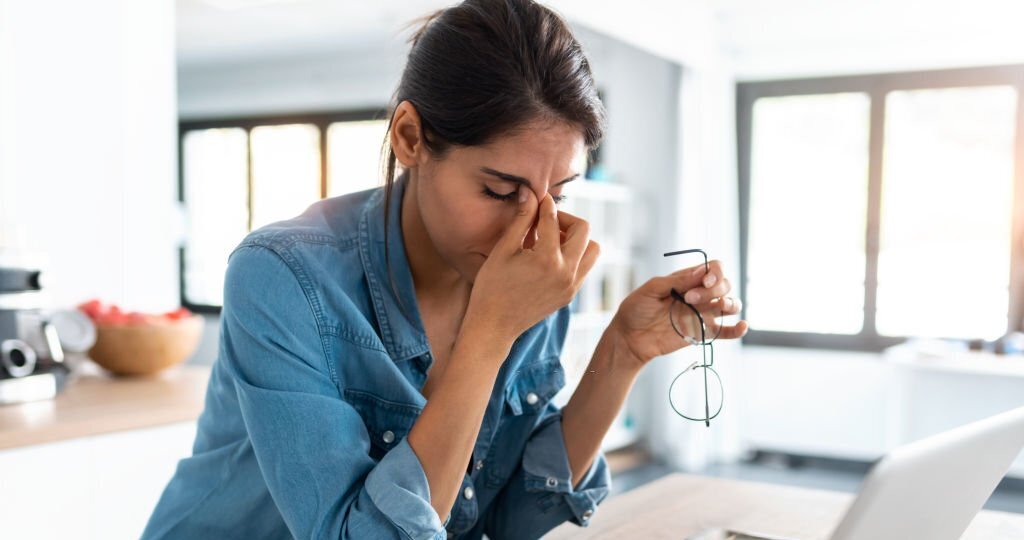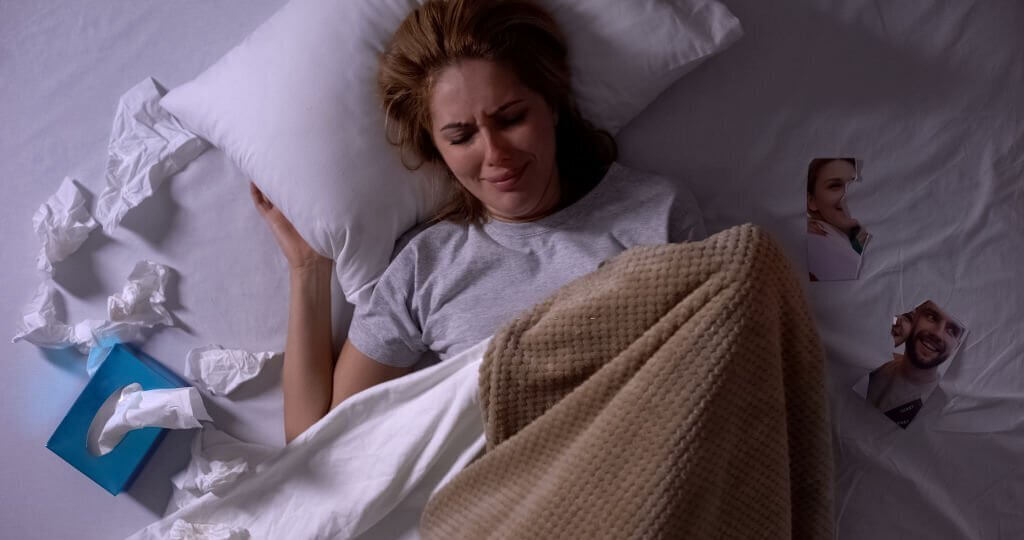Do you find yourself endlessly scrolling through social media, biting your nails, or overeating without even realizing it? These are examples of mindless habits, behaviors that we do on autopilot without much conscious thought. While they may seem harmless, they can actually have a significant impact on our mental health. In this article, we’ll delve into the science behind habits and explore how mindless habits can worsen anxiety, as well as provide strategies for breaking free from them and promoting good mental health.
The Role of Habits in Our Daily Lives: Understanding the Science Behind Habit Formation
First, let’s take a closer look at habits themselves. Habits are automatic responses to specific situational triggers. We often form habits through repetition and reinforcement, meaning that the more we do something, the more likely we are to continue doing it. This is because our brains create neural pathways that make the behavior easier to repeat over time.
According to research, around 40% of our daily behaviors are habitual rather than intentional. While this can be useful for routine tasks, such as brushing our teeth or tying our shoes, it becomes problematic when our habits are anxiety-inducing or unhealthy.
One way to break unhealthy habits is to identify the situational triggers that lead to the behavior. For example, if you tend to snack on junk food while watching TV, try replacing the unhealthy snack with a healthier option or finding a different activity to do while watching TV. By changing the trigger, you can begin to break the habit loop.
Additionally, forming new, healthy habits can be a powerful way to replace old, unhealthy ones. This can be done by setting specific goals and creating a plan for how to achieve them. For example, if you want to start exercising regularly, you could set a goal to go for a 30-minute walk every day and create a schedule to make it a habit. Over time, the new behavior will become automatic and easier to maintain.
The Connection Between Mindless Habits and Mental Health
So, how exactly do mindless habits impact our mental health? One way is through their association with anxiety. Research has shown that people with anxiety disorders have more negative automatic thoughts and are more likely to engage in maladaptive behaviors, such as avoidance and safety behaviors.
Mindless habits can also contribute to an overall sense of stress and overwhelm. When we engage in behaviors without conscious thought, we may not even realize how much time or energy we’re devoting to them. This can leave us feeling drained and anxious, especially if we’re neglecting other important areas of our lives.
Another way that mindless habits can impact our mental health is through their effect on our self-esteem. When we engage in habits that we know are not good for us, such as overeating or procrastinating, we may feel guilty or ashamed. This can lead to negative self-talk and a decrease in self-confidence. Additionally, if we are not able to break these habits, we may feel like we lack control over our lives, which can contribute to feelings of depression and anxiety.
How Habits Can Worsen Anxiety: Understanding the Triggers and Symptoms
There are a few key ways that mindless habits can worsen anxiety. For example, they can act as triggers for anxious thoughts or emotions. If you have a habit of scrolling through social media when you’re feeling bored or anxious, that could serve as a cue for your brain to start generating anxious thoughts.
Habits can also contribute to the cycle of anxiety by reinforcing negative thought patterns. For instance, if you have a habit of constantly checking your phone for new messages, you may start to feel anxious if you don’t receive an immediate response. This can lead to worrying about whether you’ve upset someone or whether something is wrong.
Another way that habits can worsen anxiety is by creating a sense of dependency. If you have a habit of relying on alcohol or drugs to cope with anxiety, this can lead to a vicious cycle of addiction and anxiety. The temporary relief provided by these substances can quickly turn into a need for them, which can exacerbate anxiety symptoms in the long run.
Finally, habits can also contribute to physical symptoms of anxiety. For example, if you have a habit of clenching your jaw or grinding your teeth when you’re stressed, this can lead to headaches, jaw pain, and other physical discomforts. Over time, these physical symptoms can become chronic and contribute to overall feelings of anxiety and stress.
Breaking Free from Mindless Habits: Strategies for Changing Your Behavior
If you’re ready to start breaking free from mindless habits, there are a few key strategies you can try. One is to identify your triggers and replace your habits with healthier alternatives. For example, if you tend to snack mindlessly when you’re feeling bored, try taking a short walk or doing some deep breathing exercises instead.
Another strategy is to focus on building new habits that promote good mental health, such as practicing gratitude or engaging in regular physical activity. It’s important to remember that breaking old habits and forming new ones takes time and patience, so don’t be too hard on yourself if you experience setbacks.
Also Check: Outdoor Cold Water Swimming For Better Mental Health
The Impact of Social Media on Our Mindless Habits and Mental Health
Social media has become a ubiquitous part of modern life, and it can have both positive and negative impacts on our mental health. One way that social media can contribute to mindless habits is through its addictive design. Features like infinite scrolling and push notifications make it all too easy to get sucked into an endless cycle of mindless browsing.
On the other hand, social media can also be a valuable tool for promoting good mental health. It can connect us with others who share our interests and provide a sense of community. It’s all about finding a balance between mindful social media use and avoiding excessive scrolling or comparison-based thinking.
The Importance of Mindfulness in Overcoming Anxiety-Inducing Behaviors
Mindfulness, or the practice of being fully present and aware of your thoughts and surroundings, can be an effective tool for overcoming anxiety-inducing behaviors. By bringing conscious attention to our habits and behaviors, we can break the automatic cycle and make intentional choices that promote good mental health.
One way to practice mindfulness is through meditation or deep breathing exercises. There are also many mindfulness-based therapies, such as cognitive behavioral therapy (CBT), that can help individuals overcome anxiety-inducing habits and promote good mental health.
How to Create Healthy Habits that Promote Good Mental Health
If you’re looking to create healthier habits that promote good mental health, there are a few key steps you can take. These include setting realistic goals, practicing self-compassion, and seeking support from loved ones or a mental health professional. It’s also important to prioritize self-care and make time for activities that bring you joy and fulfillment.
Also Check: Mental Health Benefits Of Yoga & Why You Should Do It Daily
The Role of Therapy in Addressing Mindless Habits and Mental Health Challenges
If you’re struggling with mindless habits or other mental health challenges, seeking therapy can be a valuable tool for addressing these issues. Therapy can provide a supportive and nonjudgmental space for exploring your thoughts and feelings, as well as developing new coping strategies and healthy habits.
Tips for Maintaining Good Mental Health While Navigating Life’s Stresses and Triggers
Maintaining good mental health is an ongoing process that requires attention and care. Some tips for staying mentally healthy include practicing self-care, getting regular exercise, seeking support from loved ones, and incorporating mindfulness practices into your daily routine. It’s also important to be proactive about managing stress and anxiety by setting healthy boundaries and seeking help when needed.
Conclusion
Mindless habits may seem innocuous, but they can actually have a significant impact on our mental health. By understanding the science behind habits and the ways in which they can contribute to anxiety and stress, we can take steps to break free from them and promote good mental health. From practicing mindfulness to seeking therapeutic support, there are many strategies available for creating healthy habits and maintaining good mental health in the face of life’s stresses and triggers.
















